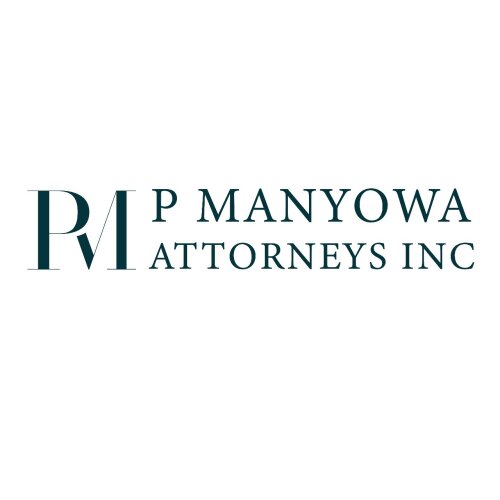Best Lawsuits & Disputes Lawyers in Polokwane
Share your needs with us, get contacted by law firms.
Free. Takes 2 min.
List of the best lawyers in Polokwane, South Africa
South Africa Lawsuits & Disputes Legal Articles
Browse our 3 legal articles about Lawsuits & Disputes in South Africa written by expert lawyers.
- A Guide to Navigating Divorce Proceedings in South Africa
- Navigating Divorce Proceedings in South Africa Key Takeaways Ending a marriage in South Africa involves navigating specific legal channels, from deciding on child care to dividing assets based on your matrimonial property regime. Understanding the procedural differences between regional courts and the High Court can save you significant time, money,... Read more →
- Consumer Protection Act Guide for South Africa Home Buyers
- The Consumer Protection Act (CPA) applies only to property sold by developers or investors in the ordinary course of their business, not to private sales between individuals. Developers cannot use the "voetstoots" (as-is) clause to escape liability for latent defects under the CPA. Buyers have a statutory right to receive... Read more →
- How to File a Road Accident Fund Claim in South Africa
- Claims for accidents where the driver is identified must be lodged within three years of the incident. "Hit and run" claims involving unidentified drivers have a much shorter deadline of only two years. General damages for pain and suffering are only available if your injury is classified as "serious" (30%... Read more →
About Lawsuits & Disputes Law in Polokwane, South Africa
Polokwane, located in the Limpopo province of South Africa, is a vibrant city where legal matters related to lawsuits and disputes are governed by both national and regional laws. Lawsuits and disputes involve legal proceedings that can encompass a variety of issues, including civil litigation, commercial disputes, personal injury claims, and family law matters. The legal framework in Polokwane aims to ensure justice and fairness for individuals and businesses involved in disputes, providing structured pathways to resolve conflicts through the court system or alternative dispute resolution mechanisms such as mediation and arbitration.
Why You May Need a Lawyer
Legal disputes can be complex and emotionally taxing, and there are several scenarios where seeking legal advice is advisable. Common situations include:
- Involvement in a motor vehicle accident or personal injury case.
- Facing a breach of contract or commercial dispute.
- Dealing with property disputes, including landlord-tenant issues.
- Handling family disputes such as divorce or child custody battles.
- Seeking debt recovery or facing claims of non-payment.
- Challenging a will or estate distribution.
A lawyer can provide clarity on your rights, help navigate the legal system, and represent your best interests in court or during negotiations.
Local Laws Overview
In Polokwane, legal proceedings adhere to broad South African law, predominantly guided by the Roman-Dutch legal system and supplemented by English common law. Key aspects include:
- Jurisdiction and Venue: Understanding which court - such as the Magistrates' Court or the High Court - has jurisdiction over your dispute is crucial.
- Limitation Periods: Most civil claims must be brought within a specified period, often three years, from the date the cause of action arises.
- Alternative Dispute Resolution (ADR): ADR is encouraged by South African law to reduce court case loads and often provides a quicker, more amicable resolution.
Knowing these aspects can help in strategically planning the approach to resolving disputes.
Frequently Asked Questions
What steps should I take if I am served with a lawsuit?
Seek legal advice immediately to understand your rights, obligations, and possible defenses. Ensure you meet any deadlines for responding to the court notice.
How does mediation differ from going to court?
Mediation is a voluntary process where a neutral third party helps disputing parties reach a mutual agreement, whereas court proceedings involve a judge making a binding decision.
What is the role of the Small Claims Court in Polokwane?
The Small Claims Court handles minor civil disputes involving claims not exceeding a certain monetary limit, offering a faster, less formal legal process without needing legal representation.
Can I represent myself in a lawsuit?
Yes, individuals can represent themselves, but it is generally advisable to have legal representation to navigate complex legal procedures effectively.
What is a 'letter of demand'?
A letter of demand is a formal notice outlining the claim and amount owed, often a precursor to legal action if the matter is not settled amicably.
How long does it typically take to resolve a lawsuit?
The timeline varies based on case complexity, court schedules, and whether parties can reach an early settlement. Cases can take months to several years.
What costs are involved in litigation?
Litigation costs include attorney fees, court fees, expert fees, and potential costs awarded to the opposing party if you lose the case.
What is the difference between 'civil' and 'criminal' cases?
Civil cases involve disputes between individuals or entities, whereas criminal cases involve actions against the state for conduct deemed illegal.
Can a case be appealed?
Yes, decisions can be appealed, typically within a specific time frame, if it's believed that a legal error affected the outcome of the case.
What should I do if I can't afford a lawyer?
Seek assistance from Legal Aid South Africa, which provides legal services to those who cannot afford them, or explore pro bono services offered by various legal firms.
Additional Resources
Consider reaching out to the following organizations for assistance with lawsuits and disputes:
- Legal Aid South Africa: Provides legal representation to those who cannot afford it.
- Polokwane Magistrates’ Court: Offers information on court procedures and services.
- South African Law Society: Can help find accredited legal professionals.
Next Steps
If you find yourself in a dispute or potential legal action, consider the following steps:
- Consult with a lawyer: Seek an initial consultation to evaluate your case and outline a course of action.
- Gather documentation: Collect all relevant documents and evidence pertaining to your case for your lawyer to review.
- Consider ADR: Explore alternative dispute resolution methods such as mediation or arbitration to potentially solve the issue without going to court.
- Adhere to legal advice: Follow your lawyer’s guidance closely to ensure that you are adhering to legal processes and timelines.
These steps will help in effectively managing legal challenges and achieving a satisfactory resolution to your lawsuit or dispute.
Lawzana helps you find the best lawyers and law firms in Polokwane through a curated and pre-screened list of qualified legal professionals. Our platform offers rankings and detailed profiles of attorneys and law firms, allowing you to compare based on practice areas, including Lawsuits & Disputes, experience, and client feedback.
Each profile includes a description of the firm's areas of practice, client reviews, team members and partners, year of establishment, spoken languages, office locations, contact information, social media presence, and any published articles or resources. Most firms on our platform speak English and are experienced in both local and international legal matters.
Get a quote from top-rated law firms in Polokwane, South Africa — quickly, securely, and without unnecessary hassle.
Disclaimer:
The information provided on this page is for general informational purposes only and does not constitute legal advice. While we strive to ensure the accuracy and relevance of the content, legal information may change over time, and interpretations of the law can vary. You should always consult with a qualified legal professional for advice specific to your situation.
We disclaim all liability for actions taken or not taken based on the content of this page. If you believe any information is incorrect or outdated, please contact us, and we will review and update it where appropriate.
Browse lawsuits & disputes law firms by service in Polokwane, South Africa
Polokwane, South Africa Attorneys in related practice areas.












